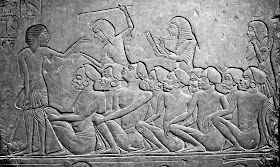Here are some common Latin phrases related to war, along with their translations:
1. Veni, vidi, vici - "I came, I saw, I conquered"
2. Si vis pacem, para bellum - "If you want peace, prepare for war"
3. Dulce et decorum est pro patria mori - "It is sweet and honorable to die for one's country"
4. Alea iacta est - "The die is cast"
5. Aut viam inveniam aut faciam - "I will either find a way or make one"
6. Per aspera ad astra - "Through hardships to the stars"
7. In hoc signo vinces - "In this sign, you will conquer"
8. Morituri te salutant - "Those who are about to die salute you"
9. Non ducor, duco - "I am not led, I lead"
10. Nemo me impune lacessit - "No one provokes me with impunity"
These phrases have been used in various contexts throughout history and have become part of the common lexicon in many languages.
And here are some Latin phrases related to legion equipment, along with their translations:
1. "Hasta" - "Spear"
2. "Pilum" - "Javelin"
3. "Galea" - "Helmet"
4. "Lorica" - "Body armor"
5. "Scutum" - "Shield"
6. "Gladius" - "Sword"
7. "Caligae" - "Military boots"
8. "Pugio" - "Dagger"
9. "Balteus" - "Belt"
10. "Fascina" - "Bundle of sticks"
These phrases were commonly used by ancient Roman soldiers to describe and refer to their equipment.
The hasta and pilum were the primary weapons of the legionary soldier, while the galea and lorica provided protection.
 |
| Pila (plural of pilum) |
The scutum was a large rectangular shield that provided additional defense, and the gladius was a short sword used in close combat.
 |
| Gladius |
The caligae were sturdy military boots, and the pugio was a dagger used as a backup weapon.
The balteus was a wide belt worn by soldiers to hold their weapons and other equipment, and the fascina was a bundle of sticks used by Roman soldiers to fortify their positions and build defensive structures.
The Hastati
The Hastati were a class of infantry in the Roman Republican army, who fought in the first line of battle. They were typically younger and less experienced soldiers, who were equipped with a hasta (a thrusting spear) and a gladius (a short sword). The Hastati were part of the Roman military's three-line formation, known as the triplex acies, which also included the Principes and the Triarii.
 |
| Hastati |
The name "Hastati" is derived from the Latin word "hasta", which means spear. The Hastati were so named because the hasta was their primary weapon. The Hastati were originally drawn from the wealthiest citizens of Rome, who were required to provide their own equipment. Later, as the Roman army expanded, the Hastati were recruited from the general population, and the state provided them with their equipment.
During a battle, the Hastati would form the first line of battle, charging forward with their spears to engage the enemy. If they were successful in breaking the enemy line, they would then follow up with their swords to finish off the enemy. If the Hastati were unable to break the enemy line, they would retreat and allow the Principes to take their place. The Hastati were considered the least experienced and the most expendable of the three lines, and were often used as a shock force to soften up the enemy before the more experienced and better-equipped Principes and Triarii took over.



.png)